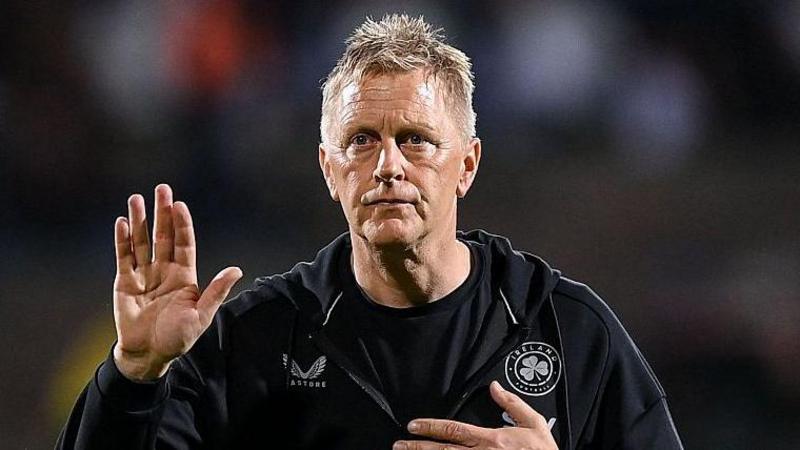Hallgrimsson on Edge After Blaming Himself for Ireland's Defeat




The Republic of Ireland's hopes of making a positive start in their World Cup qualifying campaign stumbled as they succumbed to a 2-1 defeat at the hands of Armenia. In the scenic, yet challenging backdrop of Yerevan, expectations were shattered, leaving fans and players alike to reckon with an unfavorable outcome.
Manager Heimir Hallgrimsson, who took the helm of the Irish team with promises of invigorating the squad and injecting new life into their strategies, faced the media with a forthright admission. He stated clearly that he accepted responsibility for the team’s underwhelming performance, marking a candid moment in his early tenure with the Irish side.
This match in Armenia was crucial for Hallgrimsson in establishing his footprint and setting a precedent for his approach to international football management. The Icelandic manager, known for his tactical acumen and his charismatic leadership during Iceland’s remarkable run at the 2016 UEFA European Championship, had hoped to transfer some of that same magic to the Irish squad. Instead, the outcome has served as a stark reminder of the challenges and unpredictability of competitive football.
Armenia, a team historically viewed as underdogs, proved themselves a formidable opponent. The Armenian squad executed a well-organized plan, displaying both defensive resilience and sharp counterattacking prowess. Despite Ireland enjoying more possession and arguably more chances at goal, it was the Armenian team's efficiency in front of the net that made the crucial difference.
The game itself saw Armenia take the lead in the first half, setting the tone and putting the Irish on the defensive early on. Ireland managed to pull one back, sparking hopes among the travelling support that a comeback could be on the cards. However, a defensive lapse allowed Armenia to regain the lead, which they defended stoutly until the final whistle.
The result is particularly disheartening for the Irish contingent, considering their rigorous preparations and the strategic adjustments made by Hallgrimsson ahead of the qualifiers. It suggests a need for further reflection and possibly a reconsideration of tactics before their next outing.
In his post-match remarks, Hallgrimsson highlighted several areas needing improvement and reflected on the execution of the game plan, which he felt did not meet their set objectives. The manager's acknowledgment of responsibility is certainly an admirable trait, displaying a level of accountability that reassures fans he is not only aware of the stakes but is also willing to make necessary adjustments.
Looking ahead, the road to World Cup qualification doesn't get any easier for Ireland. The squad will need to regroup quickly, address the deficiencies noted in the Armenia game, and prepare for their upcoming matches with renewed vigor and clarity. Hallgrimsson’s experience and past successes suggest that he is more than capable of turning situations around, and it will be interesting to see how he and his team respond to this early setback.
For Irish fans, the expectation now is not just a rebound in the next game, but a clear plan that showcases the team's resilience and ability to adapt under pressure. The focus will be as much on the mental recovery as the physical and tactical preparations.
Education of the defeat in Yerevan will be crucial. Ireland must ensure that the lessons from this loss translate into a stronger, more coherent performance in subsequent games, transforming potential into points that will push them towards the coveted qualification spots.
As Heimir Hallgrimsson charts the course for recovery and success, the football world will be watching closely. Can he replicate his success with Iceland, or will it require a different strategy to navigate the complexities of international football and lead Ireland to World Cup glory? Only time will tell, but the journey promises to be as intriguing as it is challenging.